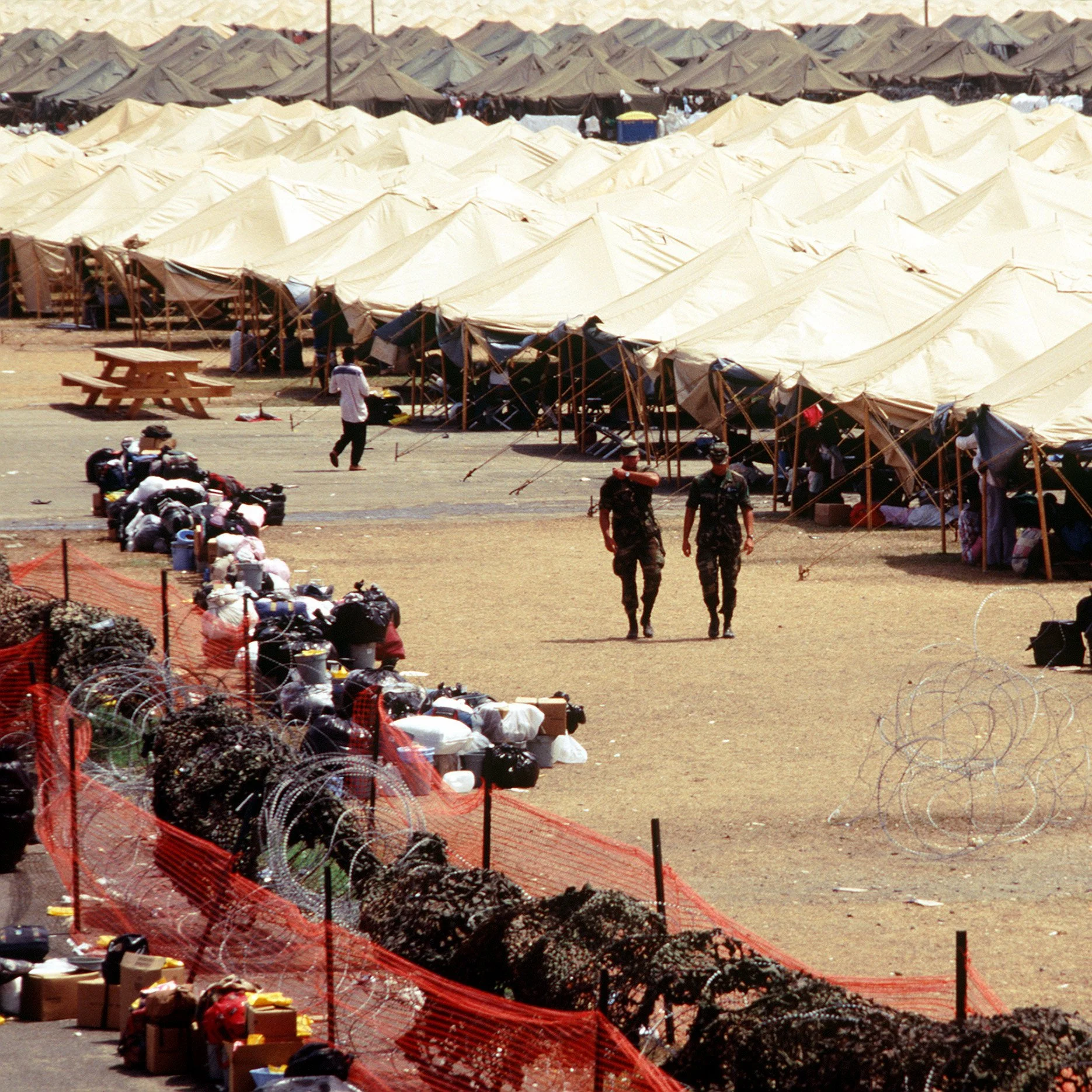Visiting the Trump Family’s New Crown Jewel
JUNE 12, 2025
The Reporter’s Notebook is our monthly interview series with Dial contributors. To receive these conversations directly in your inbox, sign up for our newsletter.
✺
A conversation with Marzio Mian, whose reporting on the Trump family’s luxury real estate project on a remote island in Albania was published in our Fathers issue.
The island of Sazan, off the coast of Albania, is home to a network of bunkers and tunnels built in the communist era and not much else: Its lush vegetation and landscape have remained largely untouched over the past decades. A new real estate project spearheaded by Donald Trump’s son-in-law Jared Kushner, and championed by Albania’s prime minister, promises to change that. Marzio Mian visited the island before it becomes a “Mecca for ultra-luxury tourism,” and describes an ambitious project that will cater to elite tourists and, Albania’s premier hopes, lead to a closer relationship with the Trump administration.
THE DIAL: What first drew you to the story of the Trump family’s plans to transform Sazan into a luxury resort? Why did it strike you as worth investigating further?
MARZIO MIAN: I have reported a great deal from the Balkans since the wars of the 1990s. From sources in Belgrade, I learned about Jared Kushner’s real estate company’s plans to transform Serbia’s former ministry of defense — which was bombed by NATO in 1999 and became a nationalist anti-NATO symbol — into a luxury "American" residential complex, featuring the first Trump hotel in Europe. U.S. media went on to report that the $500 million project was brokered with the help of Richard Grenell while he was special envoy to Kosovo and Serbia. When I heard that Kushner’s firm, Affinity Partners, was in negotiations with the Albanian government on a separate project — again facilitated by Grenell — I discussed the idea of an investigation with the editor of the Swiss magazine Reportagen, with whom I collaborate regularly. (The piece was then republished in Italian by Internazionale.) I knew it was a powerful story, especially with the U.S. presidential elections on the horizon, and I wanted to return to Albania and dig deeper.
THE DIAL: You visit the island as part of the piece, and describe it as having a very lush landscape and a complex history. What struck you most about the place?
MM: I was overwhelmed by the island’s primal beauty. I’m Italian and I know several Mediterranean islands that have been spared from mass tourism, but Sazan is in a league of its own — utterly unspoiled, the nature like something out of Jurassic Park. I learned that the island had been preserved for centuries because it lacked fresh water, which prevented permanent settlement. In the 20th century, the island was further sealed off by the paranoid regime of Albanian dictator Enver Hoxha, who turned it into a military bastion that was forbidden to civilians. The bunkers are astonishing — they emerge from the vegetation like the ruins of a lost civilization.
THE DIAL: How did you approach your interviews with Jared Kushner, Trump’s son-in-law, and his business associate? What did the real estate project look like through their eyes?
MM: As part of my reporting for this story, I spent several days with Albanian Prime Minister Edi Rama, who then acted as an intermediary with Kushner and his associate Asher Abehsera. From their tone and the way they described the project, it was clear that they see Sazan as their crown jewel and the dawn of a new era in luxury tourism. They recognize it's a unique place in the Mediterranean and see Albania as the perfect partner — meaning there’s not much red tape. What struck me most was Abeshera’s language: He seemed to believe that he was handing over an untouched island to its rightful owners — the world’s ultra-rich.
THE DIAL: You mention in the piece that environmentalists are worried about the environmental impact of the new luxury hotel. Can environmental protection and luxury tourism co-exist?
MM: Sazan’s uniqueness will end with Kushner’s project. Its centuries-long isolation, which kept it pristine, will be broken for the benefit of a wealthy tourists, making it inaccessible to ordinary people. The Albanian government won’t oppose the project — in fact, I believe it sees it as a geopolitical asset in its relationship with the Trump administration. Based on my experience as a reporter who’s covered climate change in the Arctic for years, I can say that environmental protection and luxury tourism coexist only in developers' rhetoric.
THE DIAL: How are locals thinking about the arrival of the hotel? What is your sense of how it will change their access to the island?
MM: Albania was essentially a European North Korea for nearly 50 years under a communist dictatorship. After that came years of more poverty, violence and corruption. Rama has undoubtedly brought modernization and a degree of rule of law. Many Albanian emigrants — including from the U.S. — have returned to ride the tourism wave. In general, people feel flattered by the arrival of billionaires and see the Sazan project as a magnet for future investment. The island was off-limits during the communist era and has remained so under the control of the defense ministry. Only recently were people allowed to visit Sazan’s stunning coves on boat tours. Now, it will likely become inaccessible again, and regular Albanians will see it only from afar.
THE DIAL: You spoke to Albanian Prime Minister Edi Rama for the piece, and have described him as an imposing and unusual figure. How did you navigate speaking to a high-profile politician on a subject he is unlikely to go off-script about? What is your sense of what he hopes to get out of this project with Kushner?
MM: Rama is at his best in front of an audience. At dinners, I saw him captivate guests with witty anecdotes and behind-the-scenes tales from international summits, including one about Donald Trump calling the actor Jack Nicholson before meeting Vladimir Putin in Helsinki in 2018 — a story I sadly can’t detail here. But in my one-on-one meetings with Rama, he was less forthcoming and I wasn’t able to get everything I needed. I later wrote to him, saying I would have to note his evasiveness, and he then agreed to another interview that ended up being much more productive.
He denied visiting Mar-a-Lago or meeting Trump with Kushner. But I’m certain that, through Sazan, Rama’s Albania has found a place in Trump’s heart.
THE DIAL: Where is the project up to now? Are there any potential hold-ups or legal issues that could get in the way of its construction?
MM: The Albanian government gave the plan a preliminary green light in December 2024, and I don’t expect there to be any obstacles. The environmental impact assessment is still pending, but Rama and the tourism ministry told me that the the initial assurances about environmental standards made by Kushner’s firm were already considered sufficient.
THE DIAL: What are you reporting on at the moment? How do you choose your next story?
MM: I’ve just returned from Bosnia, where I worked on a story tied to the 30th anniversary of the Srebrenica genocide. It focuses on F.K. Guber, the local football club in Srebrenica — a tragic symbol of the massacre but also Bosnia’s only interethnic team, where the children of perpetrators play alongside the children of victims. I pursue stories that matter to me, in areas of the world in which I have a history. I also like to collaborate with photographer friends to create work where words and images work together to give the most faithful account of reality possible. My next trip will be to Turkey, where I intend to investigate a major infrastructure project promoted by President Recep Tayyip Erdoğan that will have profound environmental, social and geopolitical implications.





